Write Us
We are just a call away
[ LET’S TALK AI ]
X
Discover AI-
Powered Solutions
Get ready to explore cutting-edge AI technologies that can transform your workflow!


You will all agree that the insurance industry has always had plenty of paperwork, math, risk analysis, and human interactions. Recent technological advancements are bringing a new age in the insurance field. Artificial Intelligence (AI) can be the primary factor behind this transformation. From predicting risk to enhancing the customer experience, AI in Insurance Software Development is changing how insurance companies function and deliver services.
The efficiency of the operation of the insurance industry was boosted by 60%, and the result was a 99.99% improvement in claims accuracy and a 95% improvement in customer service. Additionally, AI in the insurance sector is expected to hit 35.77 billion in 2030. This is likely to grow by 33.06% during the forecast timeframe. Through a similarity to human perception, thinking, learning, and problem-solving ability, AI can transform the insurance industry from an ad-hoc “detect and repair” approach into an active “predict and prevent” strategy.
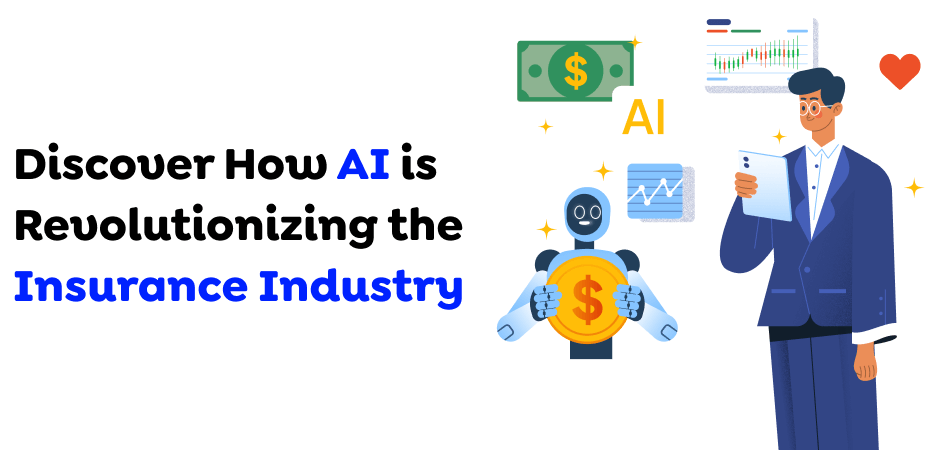
The shift is expected to impact every facet of the industry, from consumers and brokers to financial intermediaries to insurance companies and suppliers. When these players embrace the latest technology, they’ll improve the efficiency of their decision-making processes, decrease costs, and improve the overall customer experience.
In this blog, we’ll examine how AI is transforming the insurance industry.
So, let’s get started.
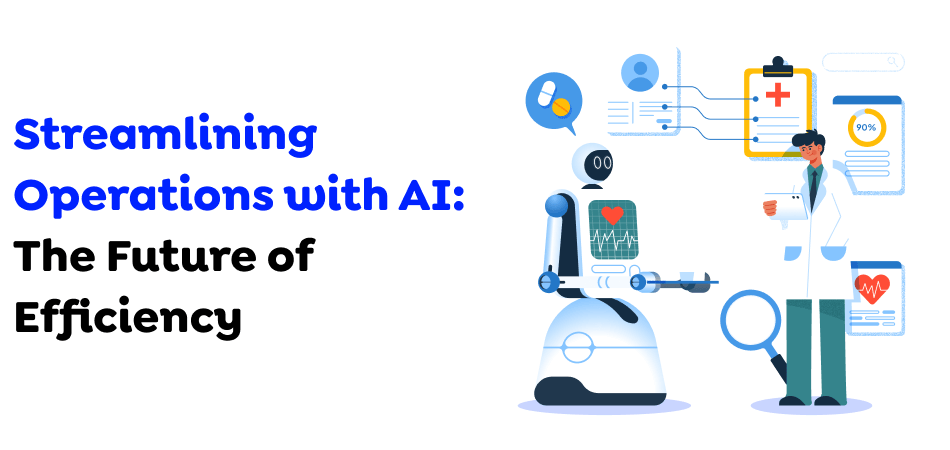
In the distant past, the insurance industry was traditionally involved in endless paperwork and prolonged waiting time to make a claim. Artificial intelligence could significantly improve numerous procedures, including detecting fraud, assessing risk, optimizing claims, etc. AI in the insurance industry has resulted in insurance automation, which has created trust in insurance companies. Through AI solutions in insurance, companies are increasing business growth, reducing the risk of fraud and risks, and automating various business processes to reduce overall expenses.
In short, it’s helpful to both policyholders and insurers. Here’s how:
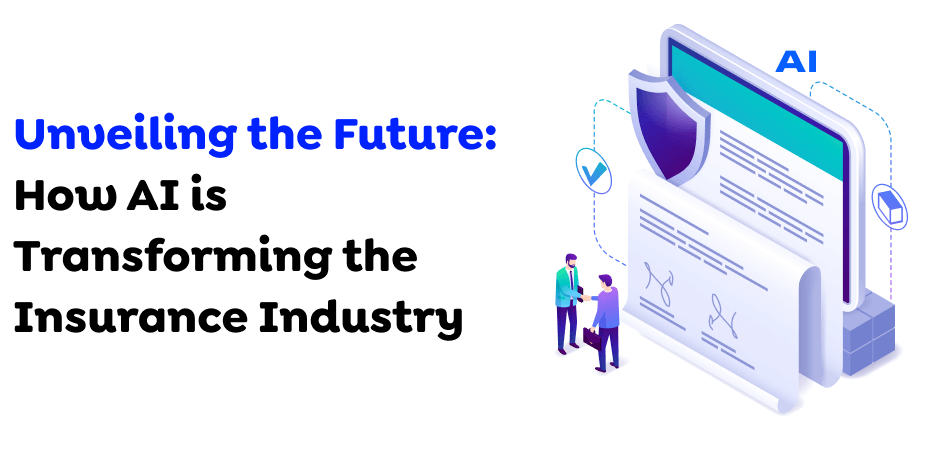
The insurance industry has historically been slow-moving and heavily dependent on manual procedures. The advent of AI has changed the rules by automating repetitive jobs, providing data-driven insight, and increasing customer satisfaction.
Do you remember when applying for insurance required completing lengthy forms and waiting for weeks to get approval? AI has transformed that. Insurance programs can simplify analysis thanks to their ability to analyze information rapidly. Simply put, it’s similar to having an assistant who can quickly go through piles of paperwork to find pertinent information within just a few minutes.
Also Read : The True Cost Of Developing An Insurance Aggregator
Nobody wants to be held waiting for a call. Thanks to AI insurance firms, they can give chatbots instant replies to the most common questions or refer customers to humans for more complicated questions. Somebody is waiting at the front desk to help, whether in the middle of the evening or the middle of the day.
Also Read : Elevate Customer Loyalty With Digital Punch Card App
Everyone is different, so why should our insurance plans differ? AI algorithms can analyze individuals’ personal information (always with the appropriate authorizations) to customize policies according to each individual’s requirements. Imagine it as the tailor who measures you to create an individual fit, ensuring you pay only for the most relevant information.
Insurers’ AI effectiveness results in lower operational expenses. These savings can often be passed on to consumers through lower rates and superior service. Imagine your favorite coffee shop trying to create excellent coffees more quickly and at a lower cost while passing these savings back to you.
Also Read : How AI is Transforming Digital Marketing Towards A New Era Of Engagement?
Making insurance claims in the past can be quite a hassle, often involving much switching. Nowadays, AI-powered programs will quickly analyze insurance claims, confirm details, and predict fraud instances. It’s like having a private investigator and an efficient employee working in tandem, ensuring the claim gets completed without unnecessary delay.
Knowing the risks is essential when it comes to insurance. AI can help analyze patterns and trends derived from numerous information sources. It’s not about forecasting the future; rather, it’s similar to a weather expert analyzing past and current data to provide a precise forecast.

In the current economic climate and given the need to remain competitive, it is vital for insurance companies to take advantage of the latest technology, including blockchain, metaverse robot process automation, and much more. Learn how adopting the most up-to-date technologies improves the tedious and lengthy insurance procedure.
Yet, adding value to the current process can only make sense when AI use in insurance has obvious positive outcomes. Check out a few:
Making claims is a complex procedure. Agents must review and comprehend the various policies to determine how much the customer will likely get for their claim. AI-powered insurance systems developed by App Development Company can pick on these automated duties to cut down on errors and speed up the process of processing claims. Businesses are embracing new technologies such as AI, RPA, and IoT to improve operational efficiency.
As connectivity has increased, insurance providers can now use a wide array of IoT equipment, like intelligent personal assistants at home and health trackers, telematics, and healthcare wearables, to quickly collect vast amounts of information. It allows insurers to remain in touch with their customers and gain comprehensive insight. These insights can later be integrated into the underwriting and management process, making better decisions with less risk.
Also Read : IOT Brewing Innovation in The Food Beverage Industry
The underwriting process mainly depended upon the information the applicant provided manually by filling out the regular form. There’s always a chance that the applicant is dishonest or makes mistakes, which could cause an incorrect risk evaluation. Connectivity is increasing, and greater use of IoT devices helps you access large datasets that contain accurate data. Natural language processing (NLP) helps insurance providers look through the vast resources to find pertinent information and evaluate the risks better.
AI for insurance claims will assist humans with the first push notification of loss, allowing insurers to report the loss directly, triage, and then assign claims. Chatbots can efficiently aid in reporting claims since consumers can file their experiences on any device and location anytime. Chatbots with AI capabilities can also share information to facilitate further processing.
The insurance industry is enormous and collects around $1 trillion in annual premiums. Due to its scale, the ratio of fraud is also extremely high. The overall cost of health insurance fraud is believed to be greater than 40 billion dollars annually, meaning premiums will rise by $400-$700 annually per family.
AI in insurance can be a revolutionary tool in detecting and preventing fraud. By analyzing massive amounts of information, AI will identify suspicious patterns and warn insurers of potentially fraudulent activities in real time updates. This helps insurers reduce risks and financial losses and ensure their integrity. By implementing AI, insurers can protect customers from fraudulent claims.
By regulating the entire process of capturing data, claim making, authorizations, and approvals AI and ML for insurance, can be integrated with different applications to simplify detecting fraud, thus reducing time and cost. AI in insurance will effectively manage and optimize different operations.
With the latest advances in AI technology, such as deep learning, machine learning, and OCR, evaluating the extent of damage has never been easier. Uploading photos of the damaged object can quickly and accurately assess its severity of damage.
Artificial Intelligence’s power in the insurance field has led to a radical change regarding the quality of customer support. In addition, as mentioned earlier, chatbots provide the most efficient method to start the process and transmit the data for the subsequent process without the intervention of a human, making the process easy, rapid, fast, and error-free.
AI-powered chatbots can cross-sell and increase product sales based on the client’s profile and history. Automating repetitive tasks can allow operations to grow in size quickly while using human resources for higher-level roles.
Also Read : Healthcare Chatbot Promising A Patient Care Industry Transformation Or A Failure
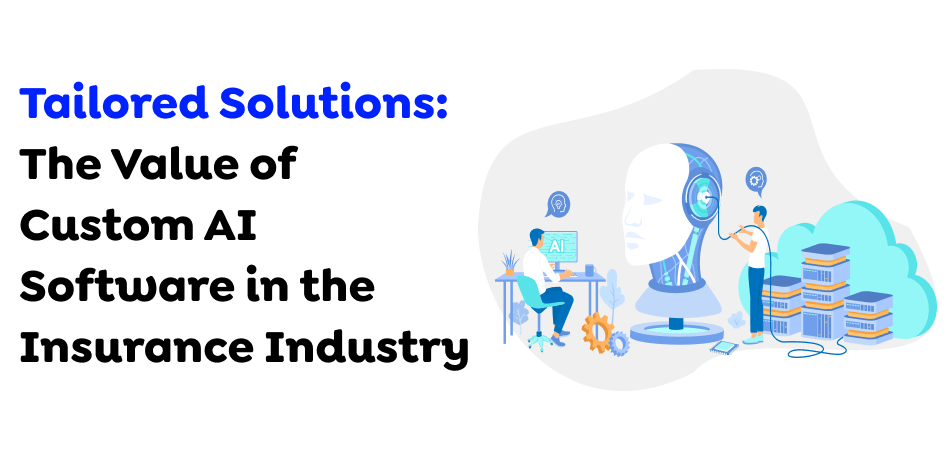
Custom-made AI software tools are an attractive opportunity for the insurance sector. The tools are explicitly custom-designed to solve specific problems and opportunities in an insurer’s niche, improving workflow and human-in-the-loop process efficiency. Custom software allows in-depth risk assessment process policies, customizing policies, and enhanced customer interaction. Ultimately, insurance companies can better reach their markets of choice and objectives in business.
Insurance firms can gain an edge over the competition by utilizing customized AI solutions. Furthermore, AI-powered software systems, including compliance tools, help navigate the insurance sector’s ever-changing and complex regulations by ensuring transparency and auditability.
The insurance sector has always been among the top, intensively utilizing industries for data. In addition to customer information, claims information, and other data, insurance companies have embraced artificial intelligence to simplify their operations and deliver more satisfying customer services. These are the top AI applications in insurance.
Fraud is an issue in the insurance world and can cause substantial losses to the financial sector. Artificial intelligence-powered fraud detection techniques will analyze large quantities of information from various sources, such as social media, to detect trends that could indicate fraud.
With machine learning techniques, insurance companies can detect fraud quickly and act accordingly. Using machine learning to improve insurance could aid in the prevention of fraud by detecting suspicious actions before they become actual claims. Using AI to detect fraud allows insurers to cut millions of dollars from losses due to fraudulent claims.
Also Read : Insurance Mobile App Development Breakting The Barriers
Underwriting is an essential process for the insurance industry, and AI helps insurers make more precise underwriting choices. AI in insurance-powered underwriting algorithms will identify risk elements and anticipate future claims based on vast data, including claim history, customer information, and other data. Through more accurate underwriting, insurance companies can estimate the cost of policies more precisely, which reduces the chance of financial loss because of policies that are priced too low.
Processing claims can be a lengthy and costly task for insurance companies. AI-powered claims processing can simplify the process, including data entry, scanning documents, and damage evaluation. Through AI, the insurance process will process the claims more quickly and with greater accuracy, which can reduce the amount of time and expense involved in the claims process for insurers. In addition, AI Insurance claims processing will help insurance companies identify fraudulent claims, which reduces the chance of financial loss.
Also Read : Health Insurance App What All You Need To Include To Make It Successful?
Risk management is crucial in the insurance business. It is essential to manage risk in insurance, and AI will help insurance companies identify and control risks better. AI technology can examine data from sources, including traffic forecasts, weather reports, and social media posts, to detect any possible dangers or repercussions. By utilizing more precise risk management, insurance companies can take informed pricing of policies and decision-making regarding claims and reduce the chance of financial loss.
Predictive maintenance helps to anticipate equipment problems before they happen, allowing maintenance teams to carry out maintenance activities proactively. In the insurance field, it is possible to lower the chance of claiming caused by equipment malfunction. Artificial Intelligence-powered algorithms for predictive maintenance can analyze data on equipment, such as usage and performance patterns, and identify the possibility of failure before its occurrence.
Predicting the likelihood of equipment failures and proactively implementing maintenance insurance companies can lower the chance of suing for equipment-related failures. Thus reducing the risk of financial loss.
Insurance companies increasingly use chatbots to help with customer service, improve response time, and save expenses. Chatbots can quickly resolve fundamental customer issues, saving employees time to tackle more complicated work and increasing productivity. AI in insurance will help improve all aspects of your company, such as branding image, customer loyalty, online engagement, and income generation.
If adequately implemented, insurers can leverage AI’s abilities to the fullest extent, from data collection to recognition. They can also enjoy 24/7, multi-channel customer service, which delights customers and decreases operational costs.
Also Read : 9 Things You Need To Know About Chat GPT Chatbot That Provide Answer
The insurance business is competitive, so providing high-quality customer service is crucial to keeping clients. Chatbots can provide 24/7 support to customers by answering their questions and guiding them through filing claims. With the help of natural technology, they can comprehend and respond to customers’ questions with precision, ensuring the customer a smooth experience. AI for insurance can also review customer feedback and pinpoint points for improvement. This allows insurers to increase their customers’ satisfaction constantly.
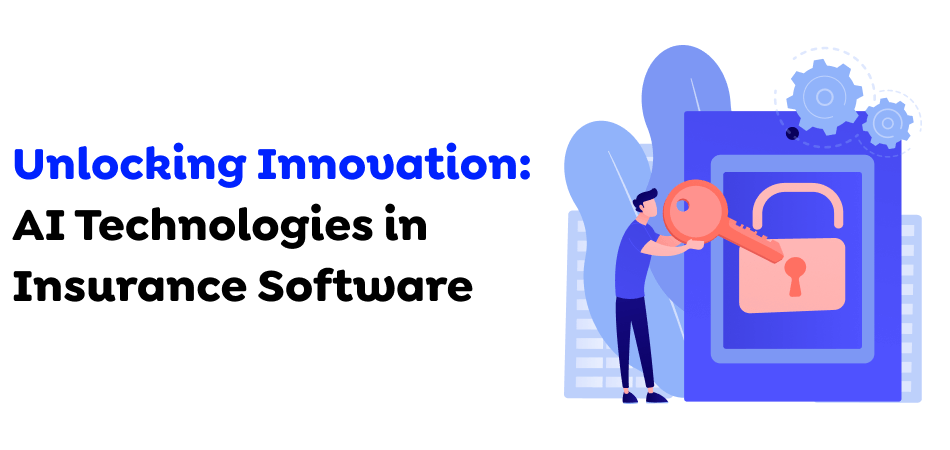
Artificial intelligence can be beneficial in the right way. To do this, it is essential to be aware of the fundamental trending technologies behind AI methods that allow machines to look, read the world around them, make decisions, and learn the same way humans do.
1. Machine Learning And Predictive Analytics
In the context of a subset AI capable of revealing connections and patterns hidden in data, machine learning is now an essential element in risk assessments. In the past, insurers had to make estimates based mostly on limited information from historical records that were often incorrect and broad categorizing policy holders. Nowadays, insurers can utilize predictive analytics and ML software to predict an applicant’s probability of filing a claim and to create more individualized risk profiles that are more akin to the actual risk.
The software considers your health history, way of life, driver’s license, and credit score, among other essential factors, to calculate insurance rates precisely according to risk. Therefore, insurance companies can tailor policies to offer attractive rates for lower-risk policyholders and charge more for high-risk ones.
Also Read : Reinventing The Financial Landscape Via AI In Banking
2. Natural Language Processing (NLP)
NLP is a different sub-technology within AI that is widely utilized within the insurance industry to improve customer service and claims. It is a general rule that nearly half of all customer service interactions involve answering basic inquiries you can find on their website. This is where even the most basic chatbots or conversational artificial intelligence used in an insurance driven by NLP could make a significant difference.
The insurance industry can employ chatbots to address commonly asked questions, offer specific information about their policies, or advise customers on finishing particular procedures. Chatbots aren’t dependent on breaks and can answer multiple questions in a single session, which frees your employees to work on more complicated tasks.
In claim processing, those same chatbots will help policyholders take pictures or videos of damage and instantly convert them into a notice of loss (FNOL). The NLP-driven optical character recognition (OCR) model can efficiently sort through and extract pertinent information from claims forms, FNOLs, and handwritten notes. In this way, insurance companies can simplify the process of processing claims.
3. Robotics Process Automation (RPA)
Artificial Intelligence in Insurance takes various forms, including robots. RPA software is designed to make repetitive tasks easier, such as collecting customer data, extracting data, and verifying. In turn, insurance firms improve productivity and efficiency while also making employees less burdensome and freeing their time to focus on more valuable jobs.
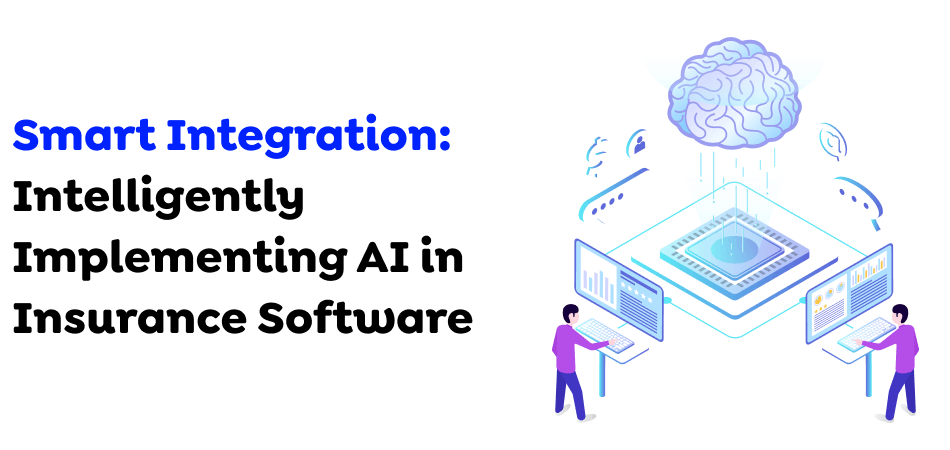
Top executives of the insurance industry must create the organization’s business strategy regarding the application of AI. Artificial intelligence technologies to help achieve company goals and meaningful returns on investment must be aligned with the strategy chosen, whether disruptive or transformative.
Numerous insurance organizations might be happy to change their operations through specific injections of AI to help humans in the procedure. One example would be an insurance company’s efforts for multi risk underwriters to pull the data in documents with machine learning models. This eliminates the necessity of entering the data from emails and other forms of documentation into records systems. Human beings are required to monitor this process since, using current AI techniques, process automation can only be 70% to 80% exact.
While other insurance companies might be disruptive if they use AI to reimagine insurance in the traditional sense, replacing humans with an AI-driven underwriter within specific markets for insurance products is possible. The nature of black-box AI is a significant problem that the AI community must address to make AI useful in heavily regulated sectors. Although Artificial Intelligence App Development that employs basic statistical models and machine learning algorithms are adept at explaining how AI makes decisions, the current focus on deep learning algorithms presents an entirely new set of issues.
Leading technology firms, researchers, and universities are frantically developing strategies to address these problems. As the insurance business is highly restricted, insurers must be able to focus their initial efforts with AI on situations where there is no need to describe the reasoning behind the specific business decision.
In the case of underwriting, for example, the AI algorithm’s conclusion to give a quote before binding and releasing the policy needs to be explained. Black-box issues should be resolved to ensure that responsible and ethical AI can serve all clients. Innovative insurers must consider designing a strategy for using AI models that conform to the tenets that define accountable and ethical AI.
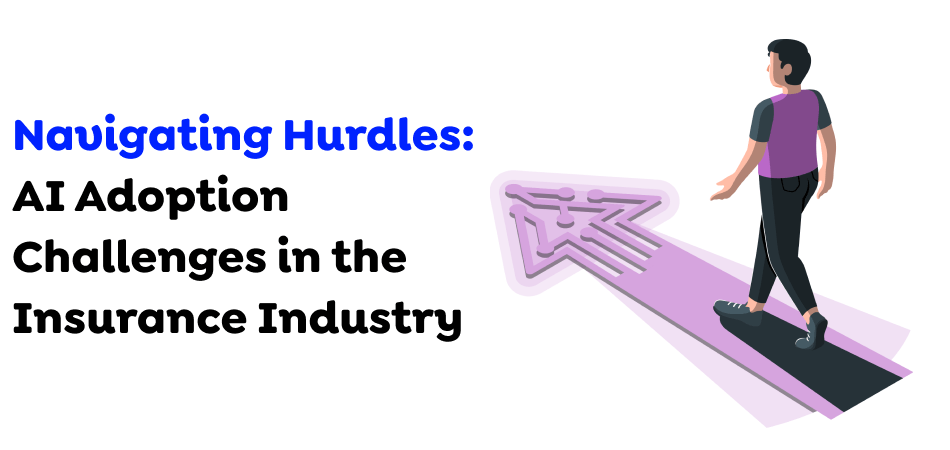
AI-powered insurance firms can be a revolutionary way to make experiences more efficient and straightforward. However, some limitations remain since AI can’t do everything. Additionally, there are significant roadblocks to the process of innovation. There are a few things you need you should know:
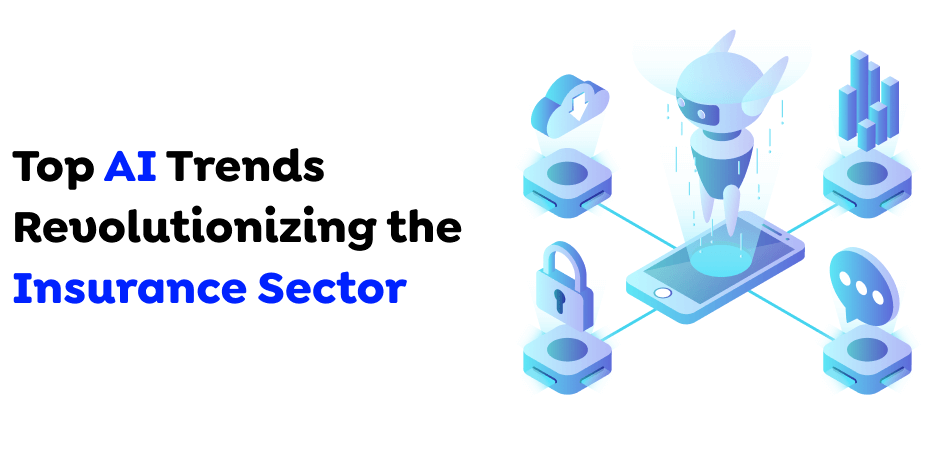
The insurance industry’s future will be a steep climb to reach new heights using different AI technology. The impact will not be limited to insurance companies but will affect all insured people. We’ll look at some emerging trends:
The proliferation of connected devices is causing a huge growth in data generation. IoT sensors and smart devices gather and send huge amounts of data, which has led to an explosion of data. This presents challenges as well as opportunities to manage, analyze, and take action using this information.
Also Read : Navigating The Impact Of IOT Cloud Computing On Modern Technology
Through AI, Insurance companies can offer highly individualized policies and services tailored to each client’s specific needs. AI algorithms can create custom insurance options by analyzing the details of lifestyle, behavior, and personal preferences. This degree of individualization is vital to attracting and keeping clients in the current competitive marketplace.
Data is the most essential thing in AI. AI technology can gather information from many sources and make sense of it. However, ensuring the information is accurate helps make better business decisions. The insurance industry can utilize precise data analytics to reduce the risk of fraud and risks before their occurrence.
Extended reality is the most advanced virtual type. The item doesn’t need to be covered to be in the location. Once the claim has been filed, the inspection can be conducted using AI technology on a computer. This will make it simpler to offer better rates for the safety features of the car to be covered.

While artificial intelligence may sound complicated and futuristic, it’s an instrument helping make insurance more effective, customized, and friendly for customers. In the meantime, as AI continues to integrate into insurance, clients and providers benefit from the seamless integration.
Since we already see the immense influence of artificial intelligence within insurance, this new technology will further affect the next generation of insurance. Companies embracing AI in their insurance programs already see the advantages through lower costs, improved procedures, increased profitability, and loyal customers who can renew their insurance policies. It’s now the time to leverage AI to transform your insurance business online.
Ready to transform your business with cutting-edge tech solutions? Get in touch with Techugo today to start your journey towards innovation and success!
Write Us
sales@techugo.comOr fill this form